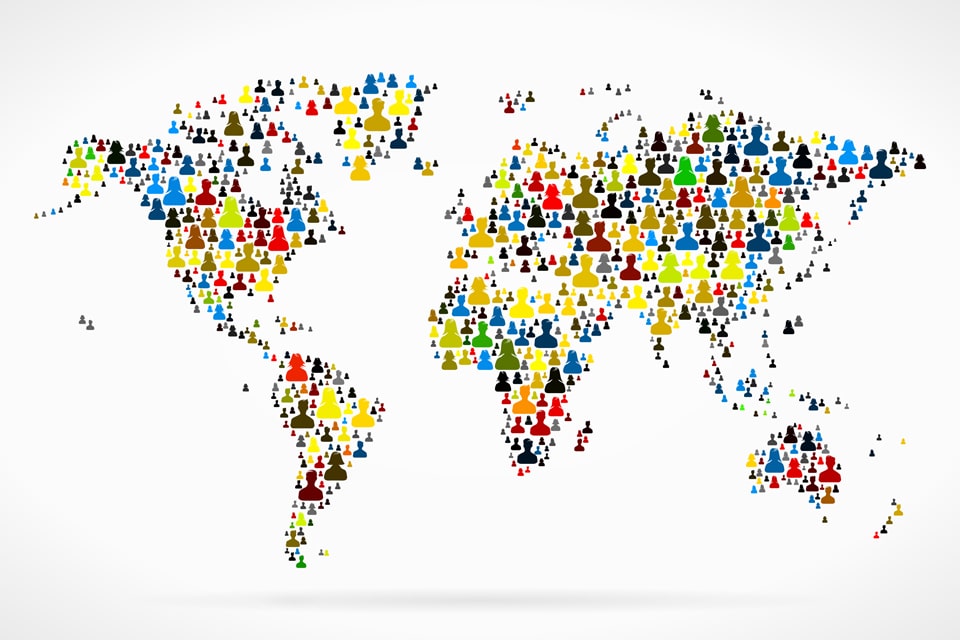Ranked: Countries with the most children (ages zero to 14), as a percentage of their population (2024 report)

The demographic transition reveals a significant trend, with a high percentage of young children in certain populations, reaching more than 45 percent in some countries. Knowing who children are or how they’re grouped can help us understand the current and future state of global health, wealth, education, and overall well-being. An analysis of the data by CEOWORLD magazine reveals a notable disparity in the composition of children between countries. In many African nations, the percentage of children exceeds 40 percent, while in several highly developed countries, the percentage of children is below 20 percent.
The different percentages indicate factors such as fertility rates, mortality rates, access to contraception, cultural beliefs, economic prosperity, and the effectiveness of public health and education systems in different countries. African countries have the highest percentages of children in their total population. Niger has the most children in the world. Forty-nine percent of its population are children. The Central African Republic, Chad, and the Democratic Republic of Congo are also children.
Countries with more developed economies generally have lower child populations. For example, the United States has an 18 percent child population, while Spain has a mere 14 percent in Europe. In many well-off Asian countries, the number of children is very low. This includes South Korea, Japan, and Hong Kong (China), where only 12 percent of the population are children (ages zero to 14). This could be due to an aging population, low fertility rates, and high societal and economic pressures.
Countries with a lot of children, like Afghanistan (about 43 percent), often have conflicts, political problems, and economic problems. This shows that people’s numbers are closely linked to social, economic, and political conditions. In contrast, despite being the most populous nation in the world, only 26 percent of India’s population consists of children. This could be attributed to the country’s ongoing efforts towards family planning and overall population control.
The global fertility rate has plummeted, sparking widespread concern in many countries. Several nations, including Japan and Spain, are already grappling with aging and declining populations. By 2,100, twenty-three countries could witness their populations slashed by half. Japan currently boasts one of the most aged populations globally, with approximately one-third of its citizens aged 65 and over.
Aging populations yield numerous adverse effects on countries. A growing population means fewer people are working. This means the economy isn’t as productive, and GDP growth is much lower. For example, Japan’s workforce will contract by 8 million by 2030. Moreover, with fewer individuals in the workforce, there’s a risk that funding for safety-net programs such as U.S. Social Security could become insufficient, necessitating higher contributions from working-age people to support the elderly. This could significantly strain public budgets due to the augmented overall costs of health and retirement programs.
Currently, an estimated 2 billion children are ages zero to 14. Because of declining fertility rates, this number is expected to peak in 2050 at 2.06 billion and then decrease to 1.9 billion again in 2,100. These are the countries with the most children (ages zero to 14), as a percentage of their population, are:
Countries with the most children (ages zero to 14), as a percentage of their population, 2024
| Rank | Country | Region | Population ages 0-14 (% of total population) |
|---|---|---|---|
| 1 | Niger | Africa | 49 |
| 2 | Central African Republic | Africa | 48 |
| 3 | Chad | Africa | 48 |
| 4 | DR Congo [Democratic Republic of the Congo] | Africa | 47 |
| 5 | Mali | Africa | 47 |
| 6 | Somalia | Africa | 47 |
| 7 | Burundi | Africa | 46 |
| 8 | Angola | Africa | 45 |
| 9 | Uganda | Africa | 45 |
| 10 | Burkina Faso | Africa | 44 |
Have you read?
Best CEOs. Best Companies. Richest People (Billionaires). Richest Women (Billionaires). Richest in Each Country (Billionaires).
Bring the best of the CEOWORLD magazine's global journalism to audiences in the United States and around the world. - Add CEOWORLD magazine to your Google News feed.
Follow CEOWORLD magazine headlines on: Google News, LinkedIn, Twitter, and Facebook.
Copyright 2025 The CEOWORLD magazine. All rights reserved. This material (and any extract from it) must not be copied, redistributed or placed on any website, without CEOWORLD magazine' prior written consent. For media queries, please contact: info@ceoworld.biz








